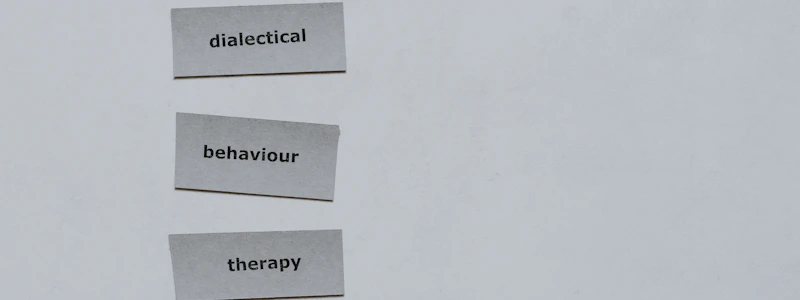Podcast
Questions and Answers
The strongest predicator of long lasting behavioral change is _____________________.
The strongest predicator of long lasting behavioral change is _____________________.
- The relationship between the personal trainer and the client. (correct)
- The client's knowledge.
- The personal trainer's knowledge.
- The personal trainer's fitness level.
Inspiring change in the client begins with ____________________.
Inspiring change in the client begins with ____________________.
- Enthusiasm.
- Strong boundaries.
- Understanding the client on a fundamental level. (correct)
- Telling the client to change.
Research by Prochaska and colleagues has shown that interventions to change behavior are _______________ if they are "stage-matched," that is, "matched to each individual's stage of change”.
Research by Prochaska and colleagues has shown that interventions to change behavior are _______________ if they are "stage-matched," that is, "matched to each individual's stage of change”.
- Less effective
- More effective (correct)
- Only effective in the short term
- Only effective with specific populations.
Which is not a factor necessary for people to change?
Which is not a factor necessary for people to change?
People in the pre-contemplation stage ____________________.
People in the pre-contemplation stage ____________________.
In the contemplation stage people weigh the benefits and risks of change ______________.
In the contemplation stage people weigh the benefits and risks of change ______________.
Assessing the stage of change can be helped with _____________.
Assessing the stage of change can be helped with _____________.
People in the pre-contemplation stage can be helped by __________________.
People in the pre-contemplation stage can be helped by __________________.
People in the action stage can be helped by ___________________.
People in the action stage can be helped by ___________________.
When in the maintenance stage, which is helpful ________________.
When in the maintenance stage, which is helpful ________________.
The goal of the motivational interviewing coach is to _____________________.
The goal of the motivational interviewing coach is to _____________________.
Creating discrepancy through open-ended questions will ____________________.
Creating discrepancy through open-ended questions will ____________________.
Which is not an assumption of motivational interviewing?
Which is not an assumption of motivational interviewing?
Which is not a principle of motivational interviewing?
Which is not a principle of motivational interviewing?
An empathic style ____________________.
An empathic style ____________________.
If you are not listening reflectively, but are instead imposing direction and judgment, you are ______________.
If you are not listening reflectively, but are instead imposing direction and judgment, you are ______________.
In uncovering ambivalence, the goal is to ________________________.
In uncovering ambivalence, the goal is to ________________________.
Which is not a strategy to deal with client resistance?
Which is not a strategy to deal with client resistance?
Summarizing consists of ___________________________.
Summarizing consists of ___________________________.
Scaling questions are a very effective way to draw the client’s attention to ________________.
Scaling questions are a very effective way to draw the client’s attention to ________________.
Intrinsic interest is ___________________.
Intrinsic interest is ___________________.
The three key elements of motivation are ________________.
The three key elements of motivation are ________________.
High mastery is associated with ___________________.
High mastery is associated with ___________________.
Connecting actions to a deeper purpose ___________________
Connecting actions to a deeper purpose ___________________
Asking your client what she intends to do ___________________.
Asking your client what she intends to do ___________________.
A strong predicator of future change is ____________________.
A strong predicator of future change is ____________________.
Flashcards
Key predictor of change
Key predictor of change
The strongest predictor of long lasting behavioral change is the relationship between the personal trainer and the client.
Inspiring change
Inspiring change
Inspiring change in the client begins with understanding the client on a fundamental level.
Stage-matched interventions
Stage-matched interventions
Research shows that interventions are more effective if they are 'stage-matched' to each individual's stage of change.
Accountability in change
Accountability in change
Signup and view all the flashcards
Pre-contemplation stage
Pre-contemplation stage
Signup and view all the flashcards
Contemplation stage balancing
Contemplation stage balancing
Signup and view all the flashcards
Assessing stage of change
Assessing stage of change
Signup and view all the flashcards
Support in pre-contemplation
Support in pre-contemplation
Signup and view all the flashcards
Support in action stage
Support in action stage
Signup and view all the flashcards
Maintenance stage strategies
Maintenance stage strategies
Signup and view all the flashcards
Motivational interviewing goal
Motivational interviewing goal
Signup and view all the flashcards
Creating discrepancy
Creating discrepancy
Signup and view all the flashcards
Misconception about change
Misconception about change
Signup and view all the flashcards
Motivational interviewing principles
Motivational interviewing principles
Signup and view all the flashcards
Empathic style
Empathic style
Signup and view all the flashcards
Imposing judgment
Imposing judgment
Signup and view all the flashcards
Uncovering ambivalence goal
Uncovering ambivalence goal
Signup and view all the flashcards
Client resistance strategies
Client resistance strategies
Signup and view all the flashcards
Summarizing for clarity
Summarizing for clarity
Signup and view all the flashcards
Scaling questions purpose
Scaling questions purpose
Signup and view all the flashcards
Intrinsic interest
Intrinsic interest
Signup and view all the flashcards
Key elements of motivation
Key elements of motivation
Signup and view all the flashcards
Mastery and motivation
Mastery and motivation
Signup and view all the flashcards
Connecting actions to purpose
Connecting actions to purpose
Signup and view all the flashcards
Asking intention
Asking intention
Signup and view all the flashcards
Commitment to future change
Commitment to future change
Signup and view all the flashcards




